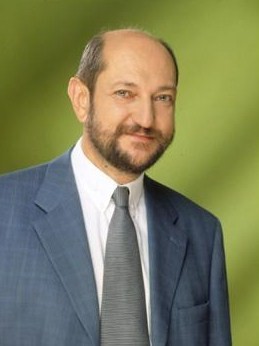- Boris Zala
Infobox_President
name=Boris Zala
nationality=Slovak

imagesize = 175pxorder=Member of the
National Council of the Slovak Republic
Slovak National Council untilDecember 31 ,1992
vicepresident=
term_start=October 15 ,2002
term_end=
predecessor=
successor=birth_date=birth date and age|1954|12|9
birth_place=Zlaté Moravce ,Czechoslovakia
death_date=
death_place=
spouse=
alma_mater=Univerzita Komenského,Bratislava
occupation=
religion=
party=Direction – Social Democracy , (PES)Chairman of the Foreign Affairs Committee of the National Council of the Slovak Republic (national parliament of Slovakia),Head of the Slovak Delegation in Council of Europe, Strasbourg
Born 9 December 1954 Zlaté Moravce, Czechoslovakia
Boris Zala is a Slovak social democratic politician, a member of Slovak parliamentand the current Chairman of the parliament’s Foreign Affairs Committee. He is also Assistant Professor at Constantine the Philosopher University (UKF) in Nitra and Chair of the Political Science and European Studies Department at UKF’s Faculty of Philosophy.
Education and Professional Career
Zala graduated from the Faculty of Philosophy of the Comenius University in Bratislava in 1979. After graduation he proceeded with his study of philosophy and received his PhDr degree (1981) and CSc degree (1995) from the same university. In 1981 he worked as journalist at Slovak Radio but was forced to quit the job due to political persecution and seek employment in various manual worker professions before he eventually managed to get a research job at the Social Development and Labour Research Institute in Bratislava in 1984. In 1990 he became head of the Secretariat of the Speaker of Slovak parliament and Lecturer in Philosophy at Comenius University, Bratislava. Since 2000 he has been Chair of the Political Science and European Studies Department at UKF’s Faculty of Philosophy in the western Slovakian city of Nitra. He is author of six philosophy, political science and history monographs and has written dozens of research studies and papers dealing with social science issues. As a media analyst and political commentator he wrote hundreds of political analyses for the Slovak press and participated in or co-authored a number of media projects in Slovak Television (STV) and Slovak Radio (SRo). In 1988-89, Zala took active part in organising protest activities against the Communist regime and was one of the co-founders of Public Against Violence (VPN) – a broad civic movement established by democratic activists with the view of putting the country back on democratic track within the framework of the Velvet Revolution of 1989.
Political and Parliamentary Career
Zala became a Member of Parliament in 1990, shortly after democracy had been restored in the wake of Communist rule’s collapse in November 1989. During his first term in parliament he was President of the Social Democratic Party, Chairman of the Defence and Security Committee of the Slovak parliament and member ofthe supreme legislative body’s Presidium. In 1992, he vacated his post as SocialDemocratic Party President, to enable Alexander Dubček to assume that function. In 1999,he became a co-founder and Vice-Chairman of the left-wing political party, "Smer-sociálna""demokracia" (Direction-Social Democracy). He was elected a Member of Parliament for thesecond time in 2002 and re-elected again in the 2006 parliamentary elections. In 2002-2006he sat on the parliament’s Foreign Affairs Committee and on the Special OversightCommittee for the Slovak Intelligence Service. After Smer-SD’s victory in the 2006elections, Zala was elected Chairman of the Slovak parliament’s Foreign AffairsCommittee and took over as head of the Slovak parliamentary delegation to theParliamentary Assembly of the Council of Europe. Presently, he is a member of theCouncil of Europe’s Political Affairs Committee, of the Committee on the Honouring ofObligations and Commitments by Member States of the Council of Europe (MonitoringCommittee) and Vice-President of the Parliamentary Assembly. He was also a member ofthe Convent for the preparation of a new EU Constitution Treaty. His political activityfocuses primarily on foreign policy and EU integration issues and on dialogue betweencivilisations, both in the context of Slovak politics as well as within larger European andEU frameworks. Zala’s chief responsibility in his political party includes policy planningand strategy issues.
Boris Zala’s Smer-SD, led by Prime Minister Robert Fico, won the 2006 parliamentaryelections with 29.1% of the votes and formed the current governing coalition. The party’ssupport among Slovak voters is currently much higher than in 2006, oscillating steadilyaround 40%.
Wikimedia Foundation. 2010.
